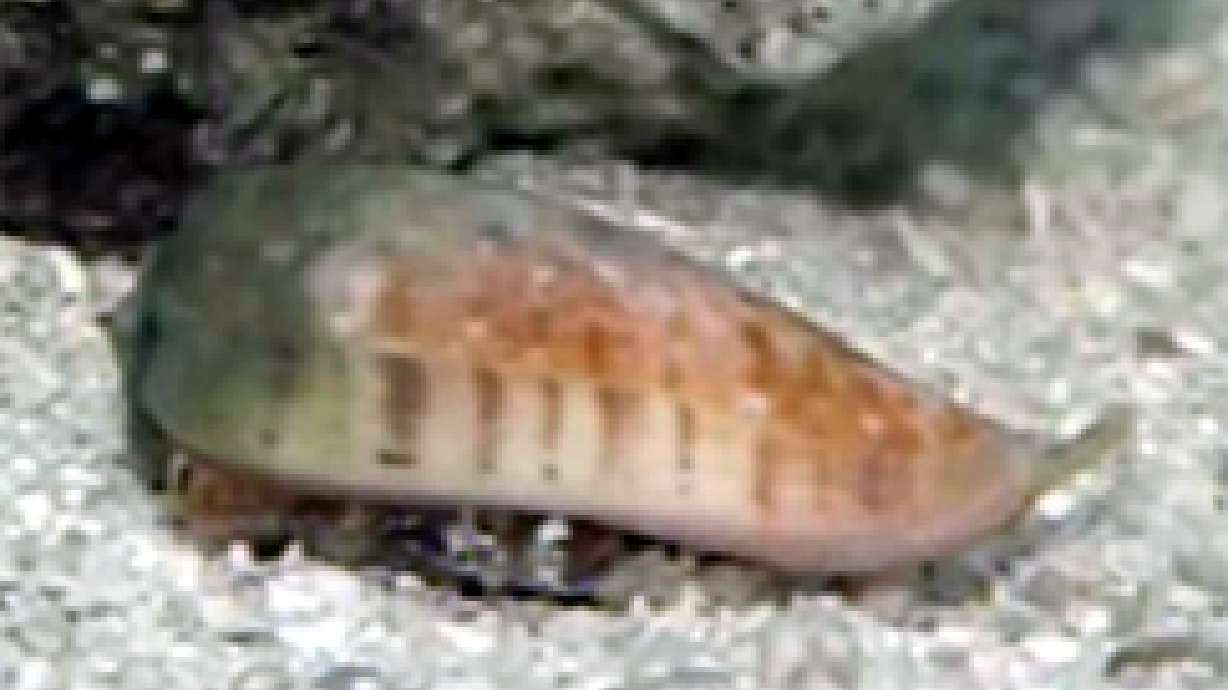Estimated read time: 2-3 minutes
This archived news story is available only for your personal, non-commercial use. Information in the story may be outdated or superseded by additional information. Reading or replaying the story in its archived form does not constitute a republication of the story.
Ed Yeates Reporting A potent poison may actually help heal a host of psychiatric and brain diseases.
The University of Utah's newly formed Brain Institute has discovered a unique recipe found inside one of the deadliest toxins known.
This ocean dwelling, a slow moving cone snail can't chase down his next dinner. So instead, he stretches out a little tube that catches a nearby fish off guard. A dart-like tooth paralyzes the prey in just a few seconds.
And it's not just this snail. The venom from the particular snail called Conus Geographis could kill a human. We're talking about paralysis and a shutdown of the respiratory system within about ten minutes.
But inside the beautiful shell of another cone snail, University of Utah Brain Institute researchers have found a toxic brew that while deadly in one form, becomes therapeutic in another.
Dr. Michael McIntosh/ University of Utah Brain Institute: "If something in the nervous system is overactive, by shutting down that overactive process with a toxin, there's actually a benefit to it."
That abnormal neurological overactivity displays itself in many ways. Alzheimer's, Parkinson's disease, depression and bi-polar illnesses, schizophrenia, tobacco and alcohol addiction.
Dr. Michael McIntosh, Baldomero Olivera and others have found unusual nerve molecules within the toxin that lock into what are called nicotinic receptors in the brain.
Dr. Michael McIntosh: "That selectivity is important because you want it to have a therapeutic action without having the side effects."
Those nicotinic receptors are there for other reasons than to be stimulated by a cigarette. McIntosh says there's a whole subset of them controlling the release of numerous chemicals to neurons - chemicals like seratonin, dopamine, norepinephrine, and more.
Finding a new way to control these chemicals when they're out of balance.
"What can be poison for a fish can sometimes be a medicine for a person."
So goes the new research.
The University of Utah Brain Institute is made up of more than 100 scientists trying to unlock the mysteries of the brain.








